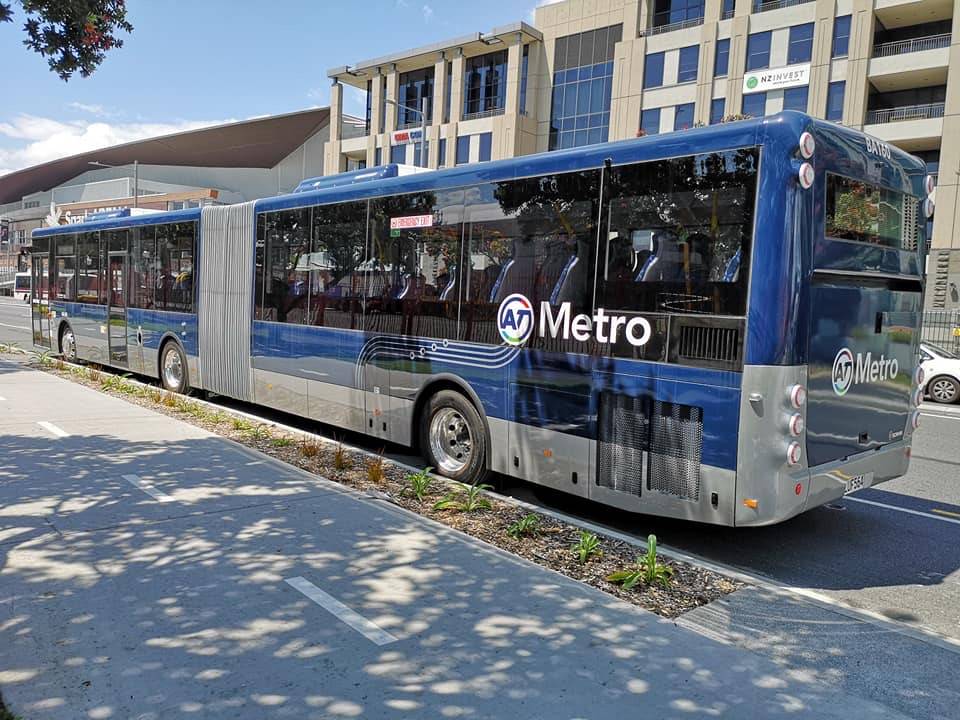Metlink exploring ‘flexible’ public transport option

Digging another tunnel to Karori and converting the existing tunnel into a viaduct were among options considered to improve Route 2 bus passenger capacity before Metlink decided on this month’s articulated bus trial.
The short and long lists of options were presented to Greater Wellington councillors today, who heard why articulated buses are the preferred option to respond to forecast demand on Wellington’s busiest bus route between Karori, Miramar and Seatoun.
Transport Committee Chair Thomas Nash says one in six Metlink bus passengers in Wellington city use Route 2, with patronage projected to double in the next ten years.
“With our driver workforce pretty much back up to full strength and cancellations down under 1%, Route 2 patronage has now surpassed pre-covid levels, with 3 million trips in the last 12 months. This means we have to look beyond just a few more standard buses to meet forecast demand, which is expected to double in the next ten years,” Cr Nash says.
“Double deckers can’t safely pass through Karori tunnel and adding standard buses to this high frequency route will just mean they bunch up and cause delays. This trial will help us understand the possible constraints for running articulated buses through the narrow streets of some of our hillside suburbs.”
The trial will examine the infrastructure limitations for articulated buses on Route 2, with the data informing future changes to the route infrastructure to safely run the buses.
An articulated bus, on-loan from Auckland, will allow Metlink officers to check the accuracy of the bus’s expected path against the bus’s actual path on the route.
Deputy Climate Committee Chair Yadana Saw says the innovative trial not only offers a potential solution to the route’s capacity problem but would be a win for the climate too.
“Unlike the diesel bus we’re borrowing for the trial, we won’t be flexible on what powers these buses. Route 2 services are exclusively electric and if we introduce modern articulated buses, they’ll also be battery powered,” Cr Saw says.
“Public transport is climate action. Patronage data tells us that Wellingtonians are increasingly ditching their cars, that’s why we are committed to providing and increasing accessible, climate-friendly alternatives.”
Metlink Group Manager Samantha Gain says feedback will be sought from the Route 2 bus operator, as well as from disability and cycling groups before Greater Wellington commits to articulated buses.
“The operator and our accessibility passengers will need to be comfortable with this vehicle type as will cyclists who share the road,” Ms Gain says.
We’ve begun liaising with these stakeholders to identify of all the changes we’ll need to consider before adopting articulated buses.”
The trial will be run late in the evenings to avoid disrupting timetabled services and traffic flow. Passengers will not be able to board the bus.
Metlink will continue studying the feasibility of introducing electric articulated buses, ahead of a possible purchase decision in mid-2024, if route infrastructure can be made safe for the buses from 2026.